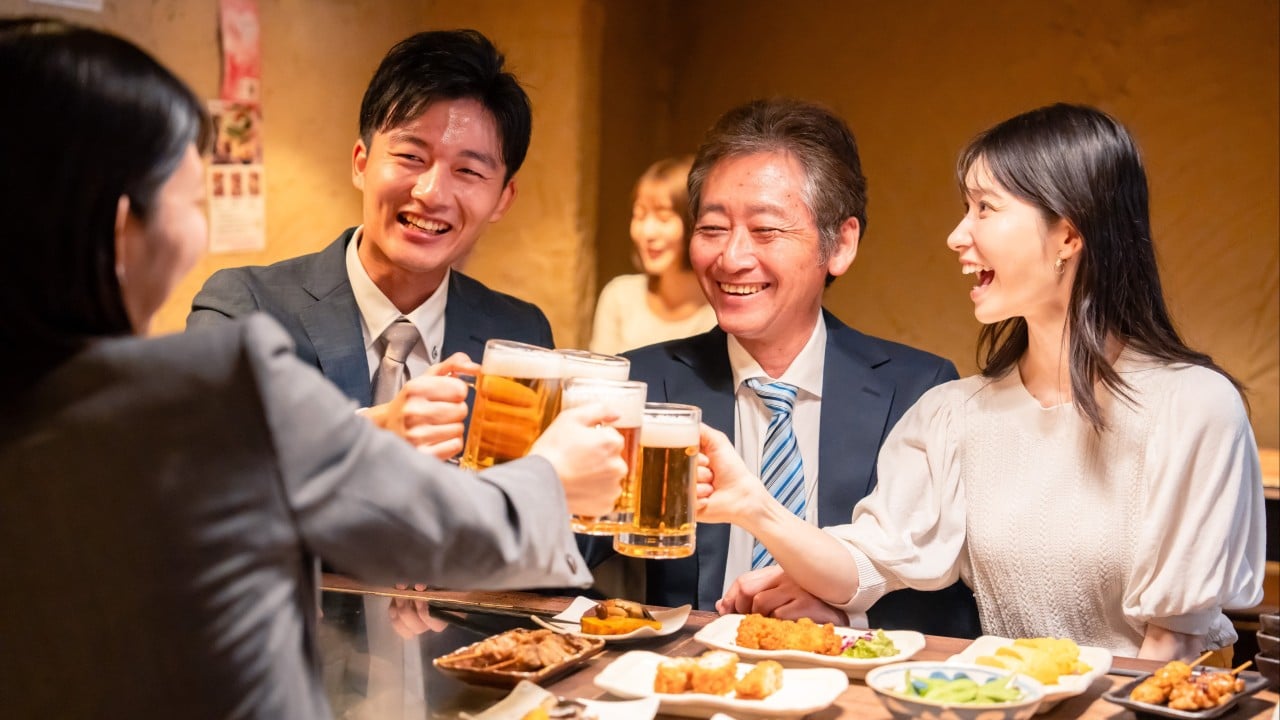Japan’s traditional bonenkai end-of-year party season is well under way across the country, although the nature of what has long been considered the obligatory annual knees-up for companies and organisations has undergone a transformation.
Advertisement
The biggest change is that company-wide events are being replaced by far smaller groups of friends from within a firm banding together to do their own thing.
Such behaviour would have been virtually unthinkable a decade or so ago, when bosses promoted the idea of “nomunication”, a combination of the Japanese word for drinking and “communication”, to bond for the betterment of workplace harmony. To have turned down an invitation to the year-end festivities then would have been seen as disloyal and marked an employee out as a potential troublemaker.
Now, however, it is becoming the norm.
“My boss is making a big thing about the bonenkai but I really do not want to go,” said Issei, a 20-something employee of a major hotel chain who declined to provide his full name. “I work with these people all the time and many of them are my friends, but there are others that I do not want to go drinking with.
Advertisement
“I’m not much of a drinker anyway and I’ll just wake up feeling bad the next day,” he told This Week in Asia. “But the worst part is feeling that I have to go when I don’t want to.”

